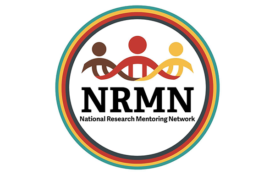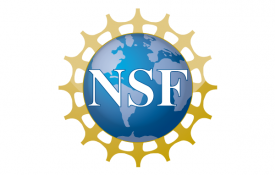-

When the Perfect Mentor Is Outside Your Network
The National Research Mentoring Network, supported by the U.S. National Institutes of Health, is a free social and professional networking tool that matches and facilitates mentoring relationships using evidence-based best practices and online resources.
-

But What’s It All For? Putting Practical Theories Into Action
Researchers suggest a number of incentives to support the development of more actionable theories in the face of what they term a “practicality crisis.”
-
The Pandemic Has Erased Entire Categories of Friendship
... American culture does not have many words to describe different levels or types of friendship, but for our purposes, sociology does provide a useful concept: weak ties. The term was coined in 1973 by the Stanford sociologist Mark Granovetter, and it comprises acquaintances, people you see infrequently, and near strangers with whom you share some familiarity. They’re the people on the periphery of your life—the guy who’s always at the gym at the same time as you, the barista who starts making your usual order while you’re still at the back of the line, the co-worker from another department with whom you make small talk on the elevator.
-
Beat the Burnout: How to Fight Pandemic Fatigue with Science
Winter can suck the wind from our sails in the best of years, but this is not just any winter – it’s a pandemic winter. This doesn’t necessarily mean it will be worse than ever. Life can be gloriously contrary and you might end up having a pleasant, cosy time. But there’s no denying that, even among those who aren’t grieving or recovering from infection, COVID burnout is real and as contagious as the virus itself. No one should beat themselves up about feeling fatigued right now. Burnout was already doing a swift trade before the pandemic came along, steadily spreading as technology allowed everyone to carry their inboxes in their pockets.
-

APS Provides Recommendations to NSF
NSF has recently asked the scientific community to comment on (1) its strategic planning process for the 2022-2026 period, and (2) how it can expand its efforts to guide internal evidence-building and program evaluation processes.
-
It’s Time for Police to Stop Lying to Suspects
Author/APS Member: Saul Kassin Most Americans don’t know this, but police officers in the United States are permitted by law to outright lie about evidence to suspects they interrogate in pursuit of a confession. Of all forms of subterfuge they deploy — like feigning sympathy and suggesting that a suspect’s confession might bring leniency — this one is particularly dangerous. In Frazier v. Cupp (1969), the Supreme Court made it lawful for the police to present false evidence. “The victim’s blood was found on your pillow,” “You failed the polygraph,” “Your fingerprints were on the knife” and “Your friend said she wasn’t with you like you said” are some common but brazen lies told.

